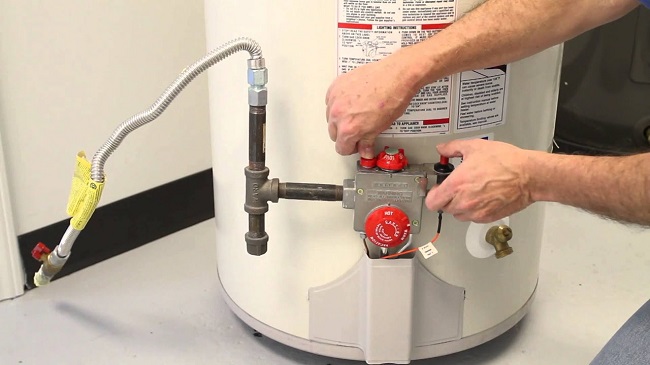The unexpected has finally happened: there’s no more hot water. For most homeowners, this is undoubtedly a major inconvenience, as hot water is essential for daily tasks such as showering, washing dishes, and doing laundry. If you’re reading this, there’s no need to panic, as there is a clear reason why your water heater isn’t heating. But before discussing those reasons, why not go to Carlson Plumbing Company and check out their services? Now let’s look at some possible reasons why your water heater isn’t heating.
Contents
Gas Leak
If your water heater uses natural gas as a fuel source, and there’s a leak where the gas line enters the tank or the supply line is leaking, there is a huge possibility that the appliance won’t heat water. It’s important to have gas water heaters that don’t heat inspected for leaks on all connections before attempting repairs or calling a plumber.
You can test for a gas leak by shutting off the main gas valve, allowing the faucets to drip, and checking for wet pipes or any unusual odor coming from your gas supply. You might have a gas leak if you notice a rotten egg odor. Here are a few things you should do:
- Close off all the gas valves in your home
- Switch off all electrical appliances, including stoves and refrigerators. Remember, gas leaks are dangerous and highly flammable from the slightest spark.
- Call your gas utility company.
- Don’t attempt any repairs on the supply line
Water Leak
Another reason why you have no water is because of water leaks. Before hot water reaches the showerheads or taps, it has to spend time in the water heater. Regardless of the power source, any water heater takes cold water and slowly turns it hot. Its functionality is like an electric kettle.
That means that if the water heater has a water leak, it will never fill with water. With not much water for the heater to warm, your water heater won’t heat as it should. To see if your water heater has any leaks, check the areas around the appliances for any moisture. If you spot any wetness, it’s time to replace the heater or call a professional plumber to fix the problem. Occasionally, water leaks may occur around the water heater fixture. If you notice leaks in these areas, the solution may be as simple as replacing the affected parts.
Thermostat Malfunction
To ensure your water heater produces hot water while remaining energy efficient, the thermostat should be set between 122 and 140°F. But, if your water heater isn’t heating, there most likely may be a thermostat malfunction. If so, check the thermostat and change the settings. If the thermostat is damaged, it’s best to replace it immediately.
Tank Size
Water heater tanks come in different sizes. If your tank is too small for your home, the hot water will run out more quickly. Perhaps your water heater did its job perfectly when it was just you and your partner. But more family members would mean more hot water and hot showers. This means the tank will take less time to store hot water. Since water heaters require time to heat cold water, this would result in you and your loved ones contending with cold showers. To address this issue, consider getting a larger water heater tank for your home.
Your Pilot Light
If your water heater requires gas as its fuel source, it will have a pilot light. The pilot light is a small flame that ignites the heater’s burner whenever hot water is required. However, if this small flame goes out, you need to relight it. However, relighting the pilot light will depend on the water heater’s model. Therefore, check the instruction on how to relight the water heater. If you can’t find the instructions, refer to the manufacturer’s website.
Age
Like every other electrical appliance, water heaters become less effective as they age. If your heater is over ten years old, its age might be the reason it isn’t heating, meaning it requires a replacement. Over time, different elements have made your water heater less effective. Instead of risking thousands of dollars on dealing with recurring problems, why not consider buying a new one?
Keep in mind that not all issues mentioned above can be resolved with a DIY solution. For your safety, it’s best to have a professional plumber inspect your water heater, diagnose the problem, and perform the necessary repairs. With a professional, you are guaranteed that your water heater will start heating.

